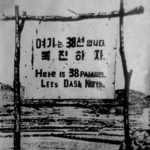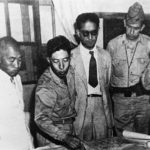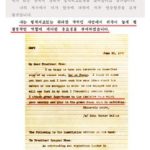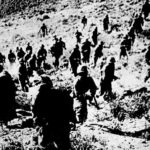On June 25, 64 years ago, cities and villages of the DPRK were covered with fierce flames of the war the US imperialists and south Korean puppet army of Syngman Rhee-led regime started against it.
The Korean war was a gangster-like one unprecedented in the world history. Many historical materials from the documents of the US and south Korea seized during the war and other historical materials testify to the fact why they started the war by enlisting huge armed forces.
First of all, the Korean war was the extension of the deep-rooted criminal policy of aggression against Korea pursued by the US.
Since long ago the US had set it forward as its state policy to put Korea, gateway to the Asian Continent, under its domination in order to realize its ambition of seizing world hegemony. In pursuit of it, in 1845 the US presented to Congress a bill for demanding Korea open up to it. Then it constantly committed armed invasions by dispatching its warships, including General Sherman, and sending a lot of guides to aggression in the guise of missionaries.
The US policy of aggression against Korea continued through centuries before entering its full-scale implementation after World War II.
At that time the US regarded Korea as a site of political and military confrontation between socialism and capitalism in realizing its ambition of gaining world supremacy, an ideological battleground upon which the destiny of capitalist world may depend.
It was proved by an article in The Oregon Journal, dated January 21, 1950, which explained that the Korean peninsula, a perimeter of the Asian Continent, was the bridgehead for the most activities in the Pacific region and that the US set its foot on south Korea during and after WWII, in view of its strategic importance. It was also revealed in the letter sent to US President Harry Truman by Edwin W. Pauley, US presidential representative on reparations, after visiting north and south Korea in the early summer of 1946. He wrote in the summary of his views that frankly Korea was an ideological battleground upon which entire success of the US in Asia may depend.
US President Truman accepted his “counsel” as an American policy toward Korea and designated Korea as a “battlefield of ideology” on which all the US “successes” in Asia might rest. The US tried to realize its policy aimed at dominating the whole Korea by applying political and diplomatic methods, but in vain. So it attempted to achieve its aim with recourse to military aggression, that is, a war.
John Foster Dulles, who flew to south Korea as a special envoy of the United States, wrote to Syngman Rhee on June 20, 1950, “I attach great importance to the decisive role which your country can play in the great drama that is unfolding.” In his private telegram sent to Douglas MacArthur in January 1951, President Truman said that unity of forces of the “free world” must be achieved through the Korean war, so that they could counter the former Soviet Union, deal a blow to the political and military might of China and subordinate Japan to them, thus realizing their aim of gaining supremacy over Asia and the rest of the world.
The Korean war was a kind of way out the US found to overcome serious political and economic crises it faced at home.
Owing to the shrinkage in the munitions industry after WWII, unemployment was on the increase and the overall economy was caught in a vicious cycle in the US.
The British magazine Economist wrote that the United States needed a contributor to overcoming the crisis, so it found it unavoidable to start a war.
In 1950 the Truman administration and his ruling Democratic Party found themselves in political distress caused by the fierce attack by the Republicans for being submissive to communism. Being apprehensive over his political career, Truman had to gamble with the Korean war to tide over the crisis by showing his true nature as an anti-communist.
The US also had to start a war so as to rescue Syngman Rhee puppet regime of south Korea which was suffering from critical political and economic situations since 1949.
An American book, The Hidden History of the Korean War, concluded: “It would be most reasonable to figure that war was the last resort of crazy Syngman Rhee. As the last game the Syngman Rhee government drove the country into a civil war, unable to keep itself steady in face of economic destruction, domestic unrest, harassment by the hostile National Assembly since his defeat in May, and then the people’s leanings towards the peace statement of the north.”
As the historical materials show, the Korean war was a state policy of the US and a war of aggression.
However, the US imperialists could not but suffer an ignominious defeat by the Korean People’s Army and people who valued justice.
The US must remember that its invasion of Korea will be followed by Korean people’s victory, and thus never repeat its past mistake.





